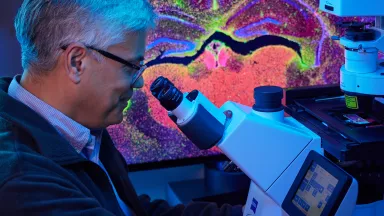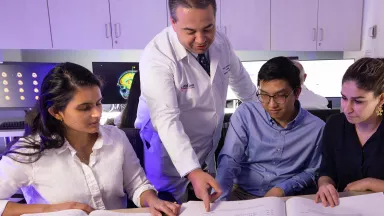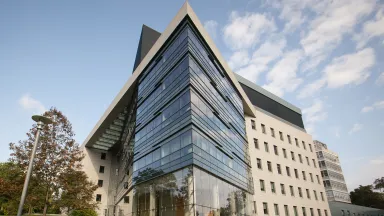Why supporting paradigm-shifting biomedical research and emerging technologies to understand, treat and cure neurological disorders is critical to changing the world
These challenging-to-treat neurological disorders are frequently chronic, rapidly progressing, and debilitating, and prove to be devastating for patients, families and their interconnected communities. Our unique legacy continues to encompass a singular dedication to alleviating the suffering of patients and families often stigmatized by such disorders of unknown provenance and unusual behaviors.
Over the past seven decades, The Saul R. Korey Department of Neurology’s envisioning of neurological diseases as ‘lifespan disorders’ has defined entirely new fields of study and clinical applications, and has forever changed the lens through which neurological diseases are globally understood. Our visionary model has enabled us to develop revolutionary diagnostic and treatment paradigms that extend beyond individual precision medicine, and disease-modifying therapies and cures, to also encompass common and novel solutions applicable to a broader range of these disorders.
Your gift can help us to continue establishing new standards of care to prevent, delay, ameliorate and eventually cure these diseases, and provide enduring hope for patients, families and their intergenerational communities.
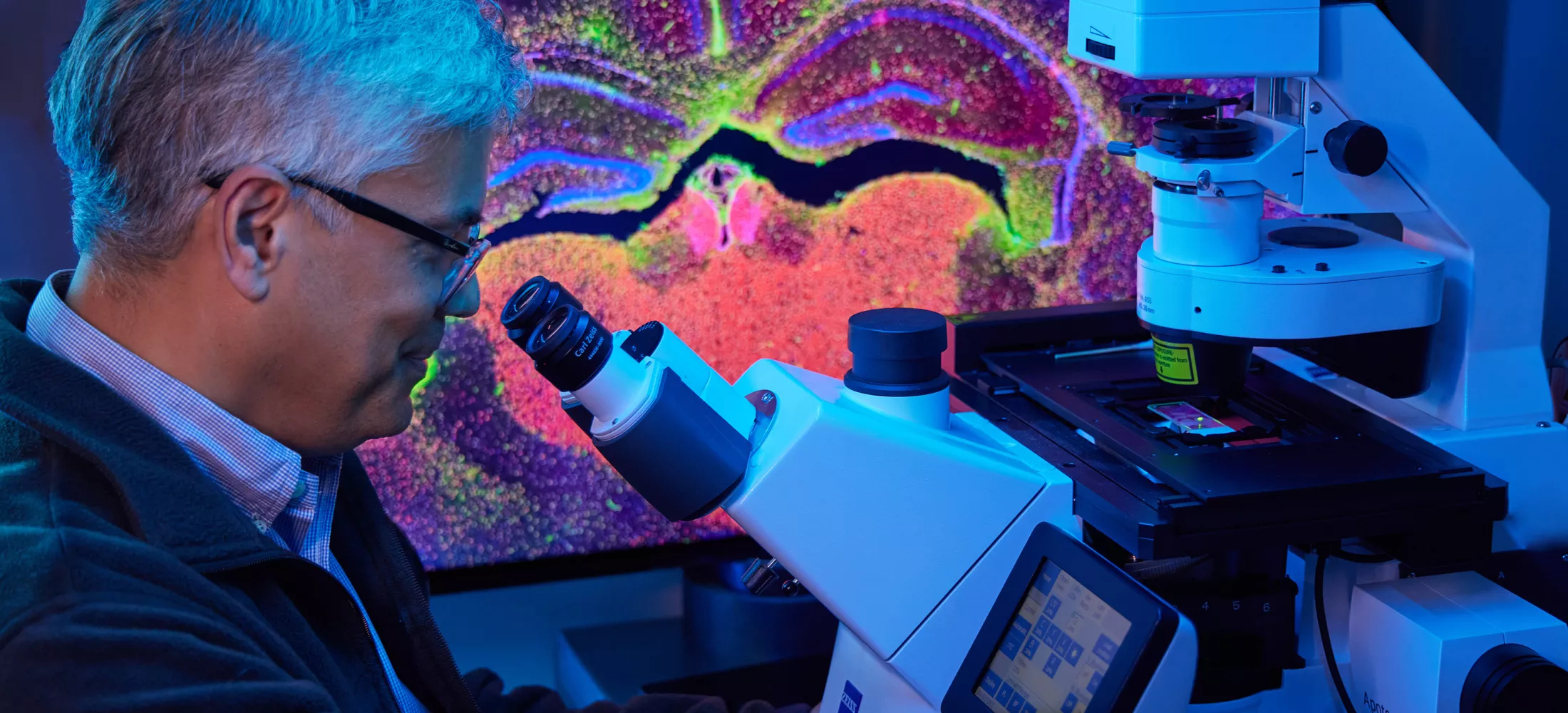
How our department’s singular legacy and culture of revolutionary biomedical breakthroughs and clinical care models are reenvisioning the neurological disease landscape
The Saul R. Korey Department of Neurology created a visionary model of neurological care, through our culture of revolutionary interdisciplinary biomedical discoveries, that enabled us to envision neurological diseases as lifespan disorders, defining an entirely new field of study and forever changing the lens through which neurological diseases are understood.
Our paradigm-shifting “lifespan” concepts and culture of innovation have resulted in advancing our understanding of neurodevelopmental disorders, and that childhood and early onset disorders necessitate different treatment modalities as the brain changes during adult life and aging. As medical breakthroughs have increased the median survival of these profound disorders, our institution offers a destination site reflecting the aspiration that these patients can lead increasingly productive and fulfilling lives as they age. From our world-defining Center for Autism and Pediatric Communication Disorders to our Center for Rett Syndrome, Center for Neurocutaneous Disorders, the Rose F. Kennedy Center for Intellectual and Developmental Disabilities, and the Children’s Evaluation and Rehabilitation Center (CERC), Montefiore Einstein continues to lead the nation and the world in these essential initiatives.
Our revolutionary "lifespan" concepts have also enabled us to advance our understanding and management of aging and neurodegenerative disorders and have given rise to our increasing understanding that aging may, in fact, start as early as conception, changing the view of neurodegenerative disorders as a new class of developmental disorders, with significant implications for diagnosis and treatment for currently untreatable disorders.
Our department created the first program in the world that challenged and transformed the view that senility is a normal part of aging, and led to an international biomedical movement to begin to study the scientific underpinnings of degenerative dementias, as well as their distinction from the process of normal aging. This led to a congressional mandate to establish the Alzheimer's Disease Research Centers, and the National Institute on Aging, a new branch of the National Institute of Health.
Research carried out in departmental laboratories led to the paradigm-shifting discovery that aging likely starts at conception and that the forerunners of late-onset dementias had their origin at the early stages of life, and account for the fact that these disorders, in fact, are systemic disorders that need to be treated in an interdisciplinary way. These revolutionary discoveries have profound implications for the early treatment of these currently untreatable conditions, using a range of stem cell, epigenetic reprogramming and dynamic tissue remodeling strategies, thereby offering hope for the development of true disease-modifying treatments and even cures.
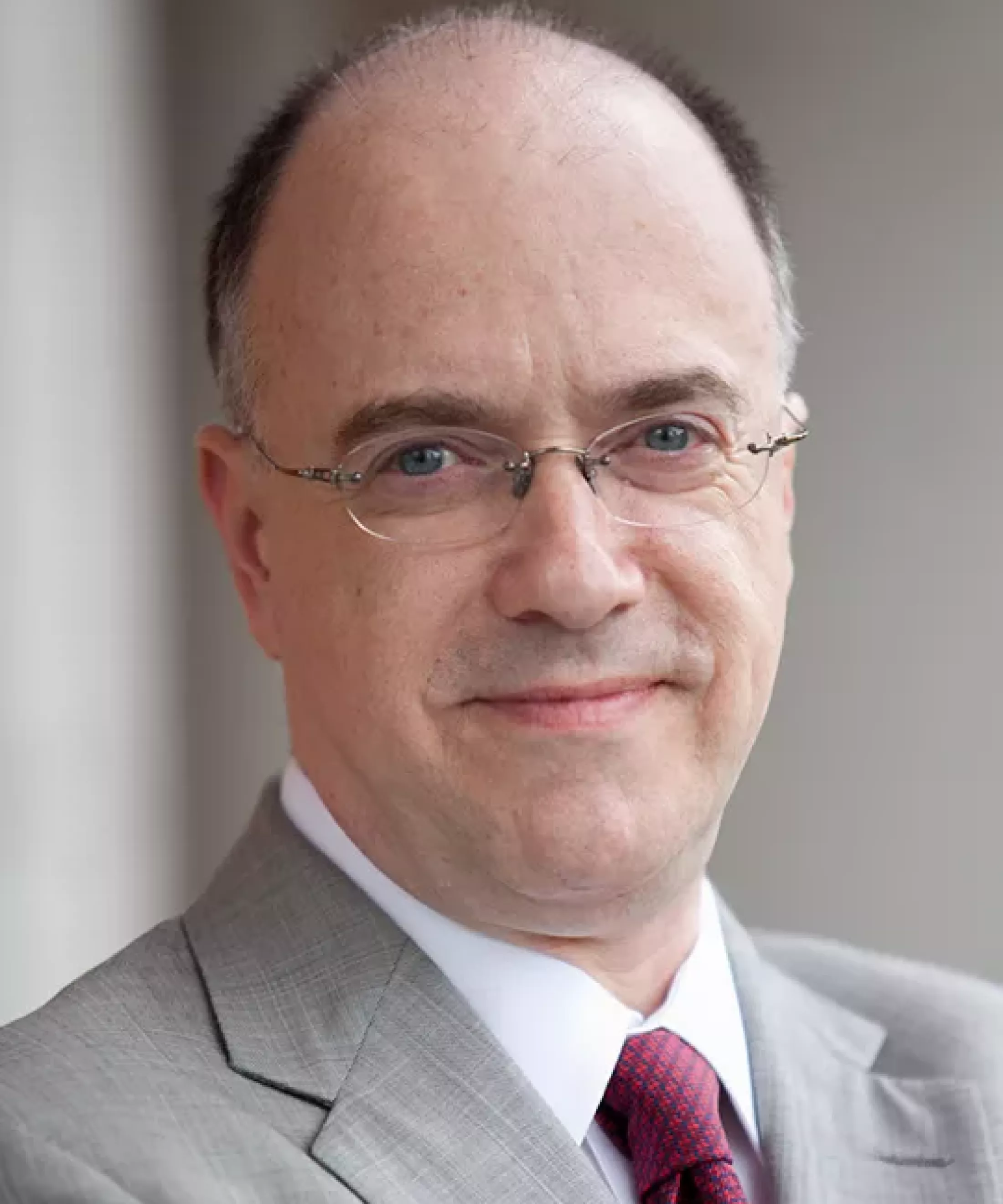
Explosive and converging advances in neurological knowledge are unearthing the causes of a diverse spectrum of devastating neurological disorders across the lifespan, and forever changing the lens through which neurological diseases are understood, prevented, treated and ultimately cured.We are actively employing these revolutionary concepts that are fueling newly emerging and integrative strategies to effectively and simultaneously change the course of a multitude of these disorders, that are frequently life-altering, currently have no therapeutic remedies, and exhibit bizarre behaviors or the ‘loss of self’ that can stigmatize the individual and profoundly disrupt the family unit and fabric of society.
Mark F. Mehler, MD
Chair, The Saul R. Korey Department of Neurology



